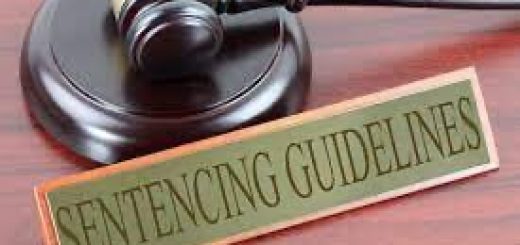SCC to Decide Constitutionality of New Procedure for Admitting Private Records in Sexual Offences Trials

Cross-examination can be a re-traumatizing experience for complainants in sexual offences trials—not least when the defence seeks to question them on their private records or past communications with the accused.
Over the years, Parliament has developed various mechanisms to limit how and what kind of evidence is admissible in sexual offence cases. The Supreme Court of Canada (“SCC”) will soon hear a constitutional challenge to the new procedure for admitting a complainant’s private records that are in the possession of the accused. This covers any record in which the complainant retains a reasonable expectation of privacy, including text messages or photos. Sections 278.92 to 278.94 of the Criminal Code, RSC 1985, c C-46 [Code], which were enacted by Bill C-51 in December 2018, require the accused to apply to admit such evidence at a relevance hearing.
Various lower courts have since invalidated parts of this scheme on the basis that it violates an accused’s right to a fair trial under the Canadian Charter of Rights and Freedoms [Charter]. Other judges have upheld the new law, resulting in a patchwork of practices across the country. While appeals are pending in many cases, no appellate court has yet weighed in on the law. However, a procedural loophole will give the SCC an opportunity to address the constitutional issues at an early stage when it hears R v J.J., SCC 39133, on May 11, 2021. This is a Crown appeal directly from an interlocutory constitutional ruling of the British Columbia Supreme Court, which “read down” the 7-day notice requirement for hearings under section 278.93(4) of the Code.
Admissibility of Evidence in Sexual Offences Trials
Prior to Bill C-51, the Code already included many restrictions on evidence in sexual offence cases. Under section 276(1), evidence of a complainant’s past sexual history is not admissible for the purposes of “twin myths” reasoning (i.e., to suggest that the complainant was either more likely to have consented to the sexual activity at issue or is less worthy of belief). However, such evidence may be admitted under section 276(2) for other, limited purposes on an application by the accused. They must show that the evidence is relevant to an issue at trial (beyond general credibility), refers to specific instances of sexual activity (rather than sweeping inquiries), and has significant probative value that is not substantially outweighed by the danger of prejudice: R v Goldfinch, 2019 SCC 38 [Goldfinch]. This scheme was found to be constitutional in R v Darrach, 2000 SCC 46 [Darrach].
Sections 278.1 through 278.91 of the Code govern access to and use of evidence such as a complainant’s medical or counselling records that are held by third parties. An accused must apply to the court, ahead of trial, for production of the record (s 278.3). A judge may review the evidence to determine if there is any relevant material to be disclosed to the defence, and if so, under what conditions (s 278.7). They must consider factors such as the accused’s right to make full answer and defence, society’s interest in encouraging the reporting of sexual offences, and the complainant’s privacy interests in the record. This procedure was similarly upheld in R v Mills, [1999] 3 SCR 668 [Mills], as carefully balancing privacy and trial rights.
There is also a common law process for vetting the use of a complainant’s private records on cross-examination, first established in R v Osolin, [1993] 4 SCR 595 [Osolin]. The SCC held that there are limits on cross-examining sexual offence complainants in order to avoid feeding damaging and unfounded stereotypes. However, questions regarding consent and credibility are permissible where the probative value of the evidence is not substantially outweighed by the danger of prejudice to the complainant. When issues arise, a voir dire should be held to determine if the proposed use of evidence is both relevant and appropriate.
The Bill C-51 amendments go further by extending the procedure for production requests to situations where private records are already in an accused’s possession. Under section 278.93(4) of the Code, the accused must apply to admit the evidence on at least seven days’ notice, or a shorter interval allowed by a judge in the interests of justice. If the judge believes the evidence is capable of being admitted, they will hold a hearing to determine whether it meets either the test under section 276 (for past sexual history evidence) or section 278.92 (for other records in which the complainant retains an expectation of privacy). This latter test similarly requires that the record be relevant to an issue at trial and have significant probative value that is not substantially outweighed by the danger of prejudice. The judge must consider factors including the accused’s right to make full answer and defence, society’s interest in encouraging the reporting of sexual offences, the need to remove discriminatory belief or bias from the fact-finding process, and the potential prejudice to the complainant’s dignity and privacy.
The differences between Bill C-51 and the common law procedure from Osolin, then, include the default seven-day notice period; the ability to hold a hearing before the complainant’s testimony (or even pre-trial); the requirement that the evidence have “significant” probative value; and the additional contextual factors to consider when weighing admissibility.
British Columbia Supreme Court
Breach Decision
The accused, J.J., was charged with sexual assault. His counsel sought to use two undisclosed photos of the complainant in her cross-examination. The defence brought a pre-trial application challenging the constitutionality of the new records scheme as contrary to sections 7, 11(c), and 11(d) of the Charter. He argued that, at minimum, the relevance hearing should only be held after the complainant’s examination-in-chief has concluded. In R v J.J., 2020 BCSC 29 [Breach Decision], Justice Duncan held that only the notice requirement in section 278.93(4) of the Code infringed an accused’s fair trial rights under sections 7 and 11(d) of the Charter. She viewed this result as a “halfway house” between completely striking down or upholding the legislation (Breach Decision, para 58).
Justice Duncan found that under a strict reading of the provision, the notice requirement failed to properly balance the rights of complainants and accused persons. It obligates the defence to disclose their evidence before the Crown has begun their case, even where the records at issue are not related to past sexual history or improper stereotypes. The admissibility hearing may allow a complainant to learn the defence’s strategy and tailor their testimony to address any past inconsistent statements. This goes beyond the existing, narrow categories where the defence is required to disclose evidence as well as other situations where a complainant might learn of the defence’s case before testifying. As Justice Duncan summarized:
…the legislation substantially alters the traditional paradigm of confronting a witness with contradictory evidence to defend oneself by replacing it with a relevance hearing in advance of a witness’s testimony. Civil trial procedures concerning mutual document disclosure appear to have been grafted onto a criminal trial where the interests of the Crown, the complainant and the accused are not concerned with financial compensation but with the potential of a criminal conviction…The defence has never been required to hand over its brief to the Crown in advance of the trial. (Breach Decision, paras 82–83)
The impact of the law, in Justice Duncan’s view, is that a complainant’s privacy interest will necessarily trump an accused’s fair trial rights.
Justification Decision
In R v J.J., 2020 BCSC 349 [Justification Decision], Justice Duncan found that section 278.93(4) was not saved under section 1 of the Charter. She agreed that the provision furthered pressing and substantial objectives (protecting a sexual offence complainant’s right to privacy, improving confidence in the justice system, and protecting the integrity of the trial process) and that the notice period was rationally connected to efficient trial management and complainant participation. However, it was not minimally impairing. Parliament had cast too wide a net “to catch evidence which has nothing to do with prior sexual conduct and everything to do with core trial issues of credibility and reliability” (Justification Decision, para 13). This interfered with the truth-seeking goals of cross-examination. Under the final proportionality step, the notice requirement failed to strike the right balance between Parliament’s objective and the accused’s right to make full answer and defence.
On remedy, Justice Duncan accepted the Crown’s argument that reading down the provision was appropriate so as not to disturb its application to the section 276 regime (which is constitutionally compliant). She issued an interlocutory ruling reading down the notice period only as it applies to records in an accused’s possession and providing that in such cases, admissibility applications should normally be made after the complainant’s examination-in-chief has concluded.
Supreme Court of Canada
Leave to Appeal
The Crown applied for leave to appeal to the SCC on the basis that it could not challenge an interlocutory constitutional ruling at the B.C. Court of Appeal. It would also be unable to raise the issue on appeal from a later conviction or acquittal because it related to the “timing” component of a procedural issue. This meant that Justice Duncan’s constitutional decision—separate from the underlying criminal proceeding—was effectively a judgment from a court of final resort in B.C. The SCC granted the Crown leave to appeal on July 23, 2020 and granted the accused leave to cross-appeal the validity of the full scheme on December 23, 2020. The case will also see numerous intervenors from across the country, including the Attorneys General of Canada and six provinces, various feminist and criminal law groups, and parties from other lower court proceedings.
buy vardenafil online Arguments on Appeal
The SCC will focus on whether the new Code procedure strikes an appropriate balance between the rights of complainants and accused persons. If a breach is made out, the Court will also have to assess whether Justice Duncan found an appropriate compromise or if this should be left to Parliament.
The Appellant, B.C., casts the provisions as an incremental extension of the common law that parallel existing, constitutionally valid procedures. Bill C-51 created a consistent scheme for the admissibility and use of third-party records, regardless of who possesses them. B.C. emphasizes the inherent limits on introducing evidence in sexual offences trials, which the SCC has affirmed in recent section 276 cases such as Goldfinch. Furthermore, the right to a fair trial must be analyzed based on “fairness in the eyes of the community and the complainant” and not just the accused (Mills, para 72). It does not include a right to “procedures that would distort the truth-seeking function of a trial” (Darrach, para 24).
B.C. also challenges Justice Duncan’s conclusion that the provisions result in “reverse” or “compelled” disclosure. An accused is required to provide detailed particulars of the record and its purported relevance; they are not required to disclose the actual record itself or their trial strategy. The test for establishing relevance is the same as that for production requests and past sexual history applications. Nor do the provisions require that applications always be made before trial or with seven days’ notice, since the trial judge retains discretion to alter this timeline in the interests of justice.
Other Crown intervenors describe the significant delays caused by adjournments to deal with admissibility issues or for complainants to retain counsel for evidence applications. This can prejudice both parties. Alberta notes, “The potential for being ambushed with personal information, that may be entirely collateral to the issues, plus consequent delay, relates directly to reasons for the underreporting of sexual assaults and the unwillingness of complainants to continue with proceedings” (Intervenor Factum, para 4).
Many similarly emphasize how the scheme protects the constitutional rights of complainants, including privacy, security of the person, and equality interests. Manitoba argues that because survivors of sexual abuse have historically been harmed by the justice system, the amendments can be viewed as furthering their substantive equality (Intervenor Factum, para 42). Saskatchewan points out that the records regime guarantees a process for determining admissibility, not an outcome (Intervenor Factum, paras 6–8). In this context, a criminal process without some form of advance notice, participatory rights, and assessment of privacy interests before publicly disclosing information would be procedurally unfair to complainants (Intervenor Factum, para 5). Rather than taking a hierarchical approach to competing Charter rights, none of which are absolute, Saskatchewan submits that the law provides for an effective balancing process through notice, screening, enumerating the factors that must be reconciled, and providing discretion to the trial judge (Intervenor Factum, para 70).
Given the legal and policy issues at play, it is too soon to predict whether this appeal will be a set-back or victory for legislative efforts to protect complainants in sexual offences trials.








Join the conversation